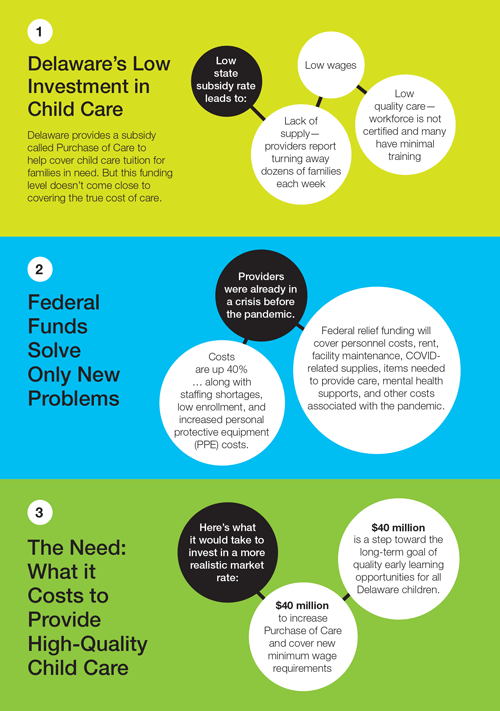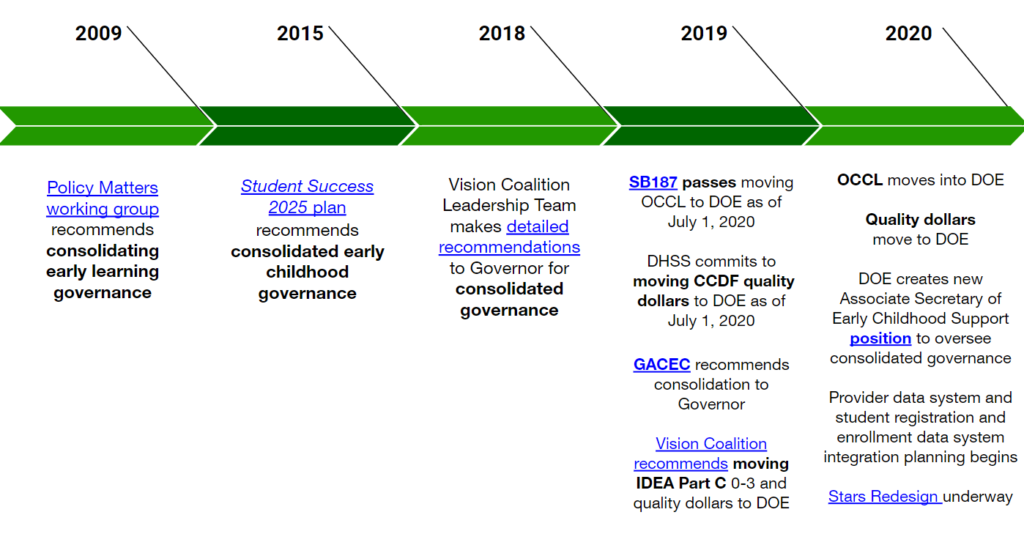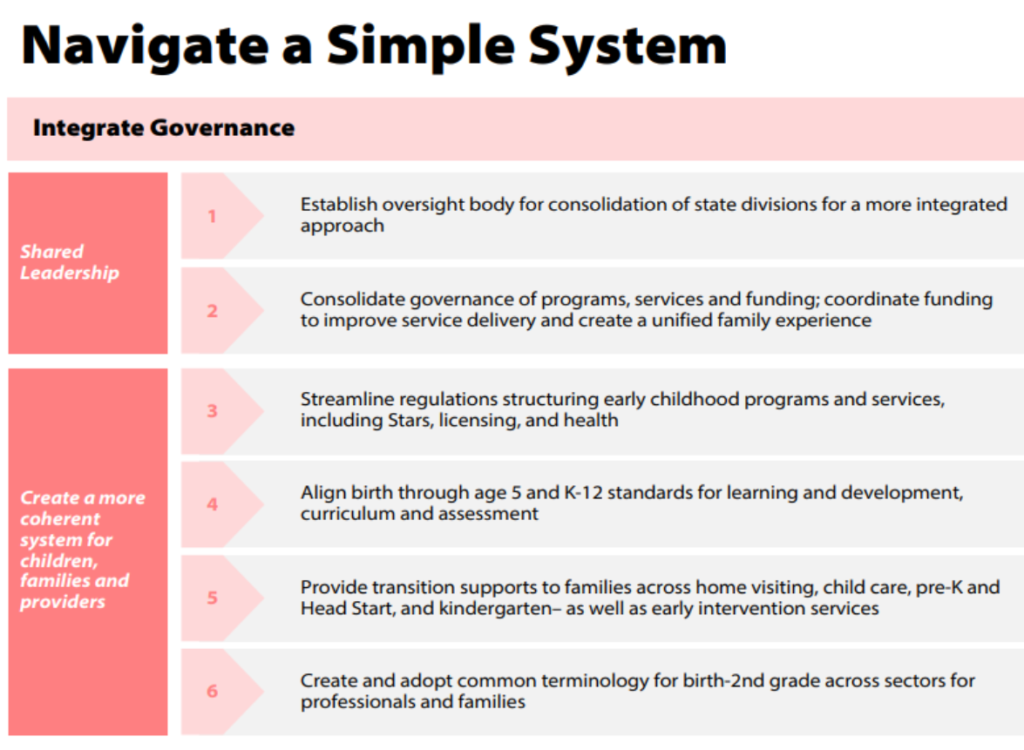Updated January 27, 2023: HS 1 for HB 144, mentioned below, has been replaced by HS 1 for HB 33.
-Preschool-aged children with disabilities often face larger class sizes and less inclusive classrooms than federal guidelines recommend.
-A new bill, HS 1 for HB 144, would reconfigure state code to make pre-K experiences more equitable and high quality.
-Progress here could pave the way for greater access and quality for all young learners.

Young children with disabilities often need extra support from the adults in their lives. At school, that usually means smaller class sizes, added staff, and an inclusive mix of peers to ensure their unique needs are being met. But in Delaware, the opposite often happens. That could soon change.
HS 1 for HB 144, which will be heard in House Education Committee this week, is an effort led by Rep. Kimberly Williams to increase equity and provide high-quality learning experiences for three- and four-year-old children with disabilities.
This bill addresses funding for public pre-K for children with disabilities by decreasing the “unit” ratio of children: adults. Units are the primary funding mechanism for teachers and special services in the pre-K-12 funding system in Delaware.
The unit ratio for children with disabilities was adjusted through legislation and funding as agreed in the K-12 lawsuit settlement for K-3 only, leaving out pre-K unit ratios—and resulting in ratios for pre-K units being higher than those in K-3. In education, ratios become smaller for younger children who need more support as well as children with disabilities.
Why it’s important
In Delaware, we have about 2,000 three- and four-year-olds in pre-schools identified for special education services—about 10 percent of all three- and four-year-olds. For kids, families, and schools, the sooner a child’s needs are identified and addressed, the better.
Children with disabilities are being served today in classrooms that don’t reflect best practices and Individuals with Disabilities Education Act (IDEA) guidelines. One of the key elements of high-quality early learning is inclusive classrooms. Delaware classrooms are simply not inclusive enough, according to federal IDEA indicators. Typically, by December of each year, only about 30 percent our pre-K classrooms with children with disabilities are comprised of at least 50 percent “typical peers,” the federal guideline.
And, the issue will become bigger over time. Today, only about 17 percent of Delaware children are screened for developmental delays. We anticipate more children being identified for IDEA services as developmental screening increases, per HB 202, which requires all children in child care to be screened in the coming year. This would bring the number of pre-K students receiving special education services closer to what we see in K-12 (16 percent). And, in 2024, all public schools serving children younger than kindergarten will be licensed child care facilities under the Office of Child Care Licensing, which requires smaller ratios (one adult: seven to 12 children) than currently funded for public pre-K (one adult: 12.8 children).
What Lies Ahead
HS 1 for HB 144 addresses a number of important issues to get the services children are entitled to—however more remains doing.
- Fund pre-K for all children: In order to prevent a lawsuit similar to one won in Pennsylvania (which is in the same federal circuit as Delaware), the state and our local education agencies (LEAs) must invest in more inclusive classrooms and in serving children in their “least restrictive setting.” That might mean LEAs funding the child’s participation in a community-based early learning setting, joined by “typical peers” or students without disabilities. A legal analysis found that Delaware and our districts are even more vulnerable to this type of lawsuit.
Today, Delaware ranks 42nd among all states in terms of state-funded pre-K, what we call ECAP (short for the Delaware Early Childhood Assistance Program). When we take ECAP, plus Head Start and students who receive special education services in Delaware preschools, we see only about 15 percent of three- and four-year-olds served in high-quality, public settings. There have been some funds invested in pre-K in Wilmington through the Redding Consortium—and the governor has committed to more through the lawsuit settlement. The commitment from the state has been to mixed delivery settings—investing in pre-K in community-based organizations, nonprofits, small businesses, family child care, districts and Head Starts—which is best practice and recommended by advocates. In order to allow charters to offer pre-K, the code may need to be changed to define a charter school as more than serving K-12 students.
- Count children more than one time per year. Unit funding is driven by a “September 30 count,” meaning schools are funded based on who is in the classroom—and who is identified for special services on that date. In pre-K, children are becoming eligible, being identified and entering the system year-round—and it takes time to diagnose and determine the right needs for children. Between September 30 and January, some districts have seen their numbers increase by multiple classrooms or even 100 children per year. Without added funding, their child: adult ratios quickly become much higher than recommended. HS1 for HB 54 would add another “count” mid-year, providing additional funding to support high-quality classrooms.
- Fund capital costs for Pre-K: Today, state capital funding is available to buildings that include kindergarten. So LEAs that need to build new buildings to serve three- and four-year-olds must do so with local funding only. This policy (referred to as “certificates of needs”) must be changed so that any public school age group can qualify. While HS 1 for HB 144 does NOT require new classrooms, this will be a need over time as more children are served.
What can you do to support this issue
- Contact your Senator and Representative and tell them to support HS 1 for HB 144.
- If you are a parent, make sure your child is screened to determine if they are on track developmentally or may need additional support.
- If you know a child that qualifies for special education services, ensure your child is receiving Free and Appropriate Public Education and advocate for their Least Restrictive Environment, including a classroom with typical peers.
- For support advocating for your child, contact the Parent Information Center of Delaware and the CLASI Disabilities Law Program.






